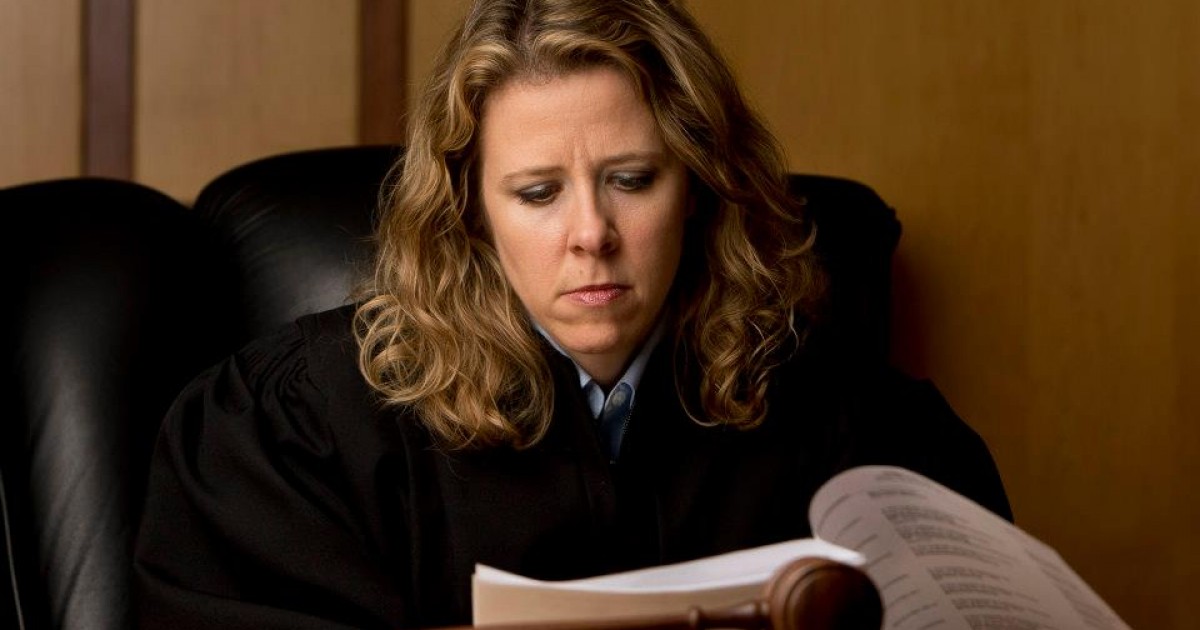Disclose All Donations to Judges
Bill requires prompt disclosure of donations by parties to a case.
Revised from testimony by WDC Executive Director Matt Rothschild before the Assembly Committee on the Judiciary:
The Wisconsin Democracy Campaign, now in its 22nd year as a nonprofit and nonpartisan watchdog on the issue of money in politics and an advocate for clean, open, and transparent government, where everyone has an equal voice.
We are in favor of Assembly Bill 137 for one very basic reason: It would help prevent some of the corruption that is rotting our judicial branch. This bill provides that whenever any party involved in a case makes a contribution to the candidate committee of a court of appeals, circuit, or municipal judge or supreme court justice in a pending civil or criminal action over which the judge or justice is presiding, the contributor must, within five days of the date of that contribution, notify the judge or justice and every party to the proceeding, in writing, that the contribution has been made and the date and amount.
As it is now, judges need to report contributions only in their six-month reports or pre-primary reports and pre-election reports or if there is a contribution over $2,000 within the last two weeks of the primary election or general election, in which case they need to report within 72 hours. So, except in very rare cases, one party in a civil suit won’t know that the other party has given $20,000 to a Wisconsin Supreme Court justice, or $5,000 to an appellate or circuit court judge!
As the U.S. Supreme Court itself ruled in 2015 in a case called Williams-Yulee v. Florida Bar: “Even if judges were able to refrain from favoring donors, the mere possibility that judges’ decisions may be motivated by the desire to repay campaign contributions is likely to undermine the public’s confidence in the judiciary.”
Notice that I said at the outset that Assembly Bill 137 would help prevent some corruption, but it would not prevent all of it, or even the most significant kind, and that’s for two reasons.
First, the bill is silent about a party’s contribution to an issue advocacy or express advocacy group that runs ads that help elect a judge. These contributions can be unlimited. Why shouldn’t a party to a case have to disclose that he or she gave a million dollars to a group that ran an ad saying: “Vote for Judge X, the best judge in the land,” when judge X is presiding over that case?
Or take the phony issue ad groups. You’ve all seen these. “So and so candidate for judge is a horrible scoundrel. Please call this candidate up and tell him to stop being such a scoundrel. Here’s his number.” If a lawyer who paid the entire bill for that ad has a case before the judge who benefited from that ad, doesn’t the other side have a right to know that?
And second, this bill is silent about the absurdly lax recusal rule that the Wisconsin Supreme Court has adopted, which says it’s totally up to the individual judge or justice as to whether they should recuse themselves or not. I know that Rep. Hebl has introduced a package of bills, AB 132-136, on that subject, and I hope they will get a hearing as well.
I was at the Wisconsin Supreme Court one week ago when it took up the petition from 54 distinguished Wisconsin judges who are now retired and who were urging the justices to tighten their recusal rule. I heard a couple of the conservative justices proclaim that this petition was an insult to every judge in this state because no judge would possibly have his or judgment tainted by such a thing. That struck me not only as highly sanctimonious but as enormously naive.
Then Justice Rebecca Bradley and Justice Annette Ziegler came up with a ridiculous interpretation of the First Amendment, saying that requiring such recusal would violate the donor’s First Amendment rights to participate in the electoral process. Note that recusal doesn’t stop donors from voting; nor does it stop them from giving unlimited amounts of money to outside groups. All it stops them from doing is receiving a benefit from those donations, and that benefit is having a judge who is in their pocket sit on their case. And by the way, the U.S. Supreme Court hasn’t bought this interpretation of the First Amendment. Not at all. In the Williams-Yulee case I cited before, for instance, the Court ruled that “ Florida’s ban on the personal solicitation of campaign funds by candidates for judgeships does not violate the First Amendment.”
So while we at the Wisconsin Democracy Campaign endorse Assembly Bill 137, we recognize that it is only a partial step toward rectifying the problem of corruption in our judiciary, a problem that the Wisconsin Supreme Court refuses to acknowledge, much less address.
Matthew Rothschild is executive director of the Wisconsin Democracy Campaign.
If you think stories like this are important, become a member of Urban Milwaukee and help support real, independent journalism. Plus you get some cool added benefits.
Op-Ed
-
Wisconsin Candidates Decry Money in Politics, Plan to Raise Tons of It
 Dec 15th, 2025 by Ruth Conniff
Dec 15th, 2025 by Ruth Conniff
-
Trump Left Contraceptives to Rot; Women Pay the Price
 Dec 8th, 2025 by Dr. Shefaali Sharma
Dec 8th, 2025 by Dr. Shefaali Sharma
-
Why the Common Council’s Amended Budget is Good Policy for Milwaukee
 Nov 20th, 2025 by Alds. Marina Dimitrijevic and Russell W. Stamper, II
Nov 20th, 2025 by Alds. Marina Dimitrijevic and Russell W. Stamper, II




















